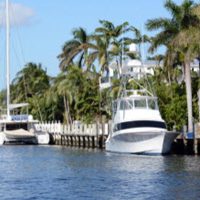Understanding Boating Accident Liability In Florida

Florida has the most registered boats out of any state in the US. And with lots of registered boats come lots of potential accidents on the water. So, who is liable in a boating accident? How is that determined? Obviously, liability for boating injuries will depend on the details of the accident. Anyone who negligently or recklessly operates a vessel will bear some responsibility in paying for damages. Operators driving a boat must always adhere to applicable boating safety statutes and with reasonable care for the situation.
Failure to use “reasonable care,” essentially amounts to negligence. Situations like this include:
- Boating under the influence of drugs or alcohol
- Operating a boat in unsafe conditions
- Failure to have proper safety equipment on board
- Reckless driving resulting in capsizing
- Going too fast
- Not paying attention while operating the vessel
It is possible to be held liable for a boating accident without even coming into contact with another vessel if an operator isn’t following the rules of the water. No-wake zones are there for a reason and if a boat’s wake causes another vessel to capsize or become damaged, the operator of that vessel is responsible.
Boating insurance is not a requirement in Florida. However, for those with boating businesses, banks often require insurance if the owner does not operate the business outright or if they are in the business of renting the boats out to the public.
In this capacity, marinas can also be liable for boating accidents. Renting to unqualified or unsafe operators or failing to maintain their boats in good working order are reasons marinas may be held responsible for a boating accident. Most boat renters will need to sign waivers of liability, but this does not automatically excuse a boat rental or charter company from liability. Everything depends upon the specifics of the accident and the exact language used in the contract.
Basic Safety Protocols
Basic Safety Protocols are rather direct and easy to follow:
- Wear a life jacket
- Take a boating course
- Schedule a vessel safety check
- Equip your boat with an emergency kit
- Make sure all boat guests are familiar with how to use each of the items
- Do not drink and drive
- Be prepared for weather changes
- Know where you are at all times
- Know how to contact the coast guard in case of an emergency
- Passengers under 12 should always wear a life jacket on open decks
It is also important to ensure your boat is equipped with the appropriate safety equipment on board:
- Life jackets for every passenger
- Fire extinguisher
- Proper navigational lights
- Sound-producing device like a horn or whistle
- First Aid Kit
If you are injured in a boating accident, you must prove that your injury directly resulted from someone else’s negligence to receive compensation. That is why it’s important to contact a personal injury lawyer who specializes in boating accidents to guide you through the legal process.
